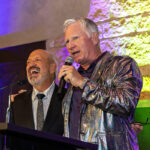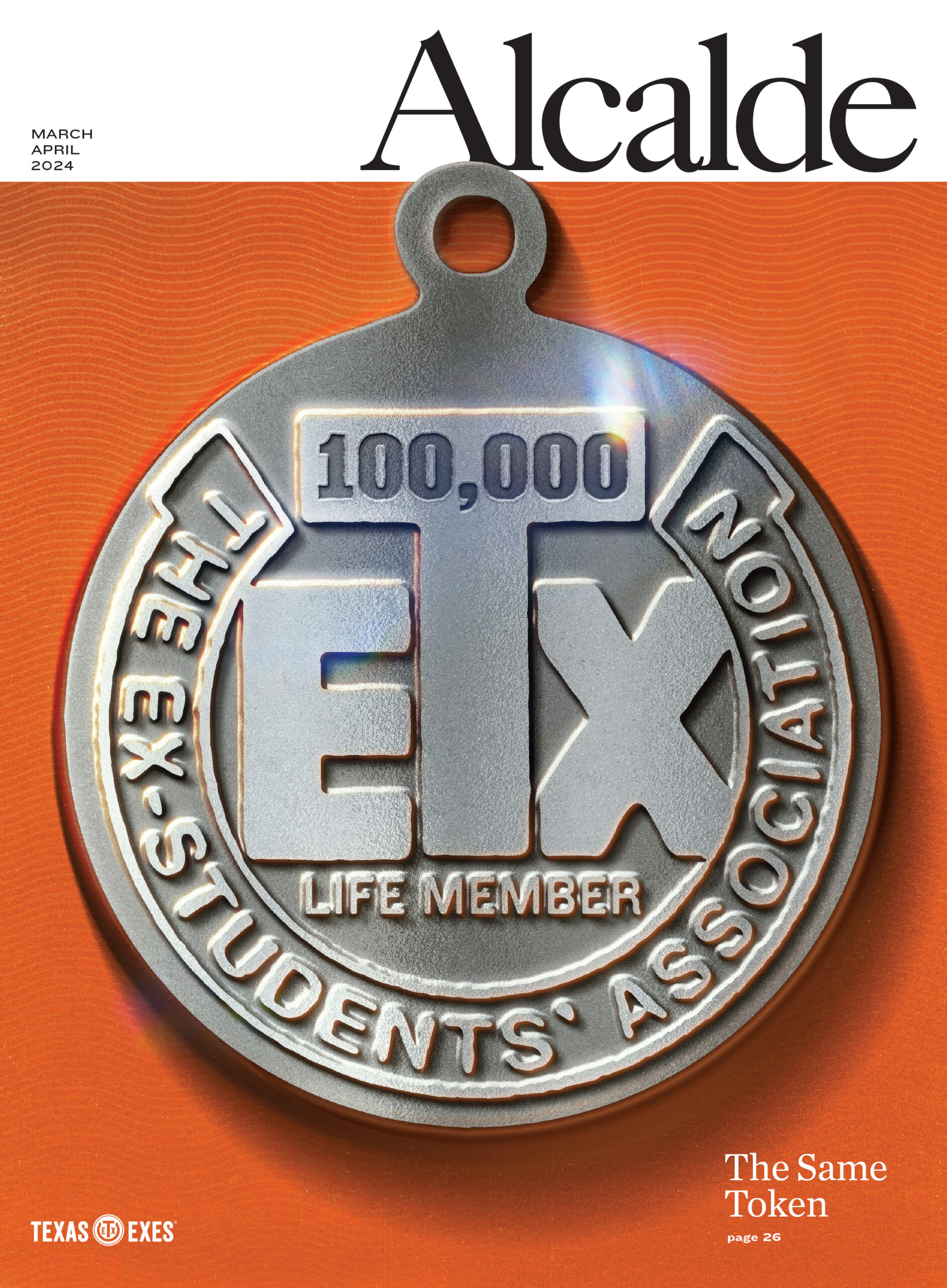“Colossal” Dissects the Beauty and Brutality of Football
Andrew Hinderaker’s play Colossal explores the game we all know and love, even if the brutality of football can sometimes make us squirm.
The acclaimed play—described by one theater critic as “by far the most physically demanding play I’ve ever seen”—features a huge cast with actors suited up in football helmets and pads running plays on the stage, a drumline, a halftime show complete with dancing, a lead actor in a wheelchair, and the story of two star-crossed lovers who are co-captains of the University of Texas football team.
Colossal has garnered national media attention for its timely themes of homosexuality in a hyper-masculine sport, catastrophic sports injuries, and the troubling violence in the game. Hinderaker, MFA ’13, won the prestigious Jean Kennedy Smith Playwriting Award from the Kennedy Center for the Arts for his script, and he was invited to workshop the play there. Colossal was featured at the Cohen New Works Festival at UT in 2013, and it premiered at Olney Theater in Maryland and has played to sold-out houses there and in Minneapolis at Mixed Blood Theatre Company. Productions are planned for 2015 in Dallas, New Orleans, and Boston.
The story is told through the eyes of Mike, a former football player confined to a wheelchair after a career-ending injury to his spinal cord. The play is divided into four 15-minute quarters, with time ticking off a game clock, scored by drumline beats as the plot unfolds in flashbacks to reveal how he ended up in a wheelchair and his struggle to come to terms with his new reality.
Hinderaker has been a fan of football since he was a small child growing up in Wisconsin, attending games with his parents at the University of Wisconsin. “A part of the play comes from that place—the love of football, an appreciation for how theatrical football is, how exciting football is, how rarely theater feels as visceral and exciting and alive as a game of football,” Hinderaker says. “But, of course, I’m also troubled by some aspects of football, in terms of what it does to the people who play it and particular social norms and paradigms of masculinity it lifts up.”
Hinderaker wrote the play in 2011 while he was a graduate student in the College of Fine Arts’ playwriting program. His professor, Kirk Lynn, challenged him to write a play that was “unproducible.”
Up until that point, Hinderaker admits that his plays were fairly conventional in nature, but the influence of an active experimental theater scene in Austin that subverted and made fun of traditional theater pushed him to explore structure and narrative in this new work. As he looked around at available resources that only Texas could offer, he found support for the production in some surprising places, including the Longhorn football program, which invited him to attend practices and donated athletic equipment worth thousands of dollars to the production.
“I’m hugely grateful because I wouldn’t have written a play like Colossal without Texas, without the influence of all those faculty mentors I had there, without the influence of the community,” he says. “It was, I dare say, the first collaboration at the University of Texas between Theatre and Dance, Disability Services, and the football team, and I think it’s a real tribute to the University of Texas that this was something that everyone was so game to do.”
When asked about the significance of the main character being a Longhorn in the play, Hinderaker joked that it was impossible to ignore the football program at UT when he was in grad school—the theater building literally sits in the shadow of Darrell K Royal Memorial Stadium. But he also realized that the University of Texas created a built-in iconic university setting for his characters.
“If there’s a center of football, to me it’s Texas,” he says.


















1 Comment